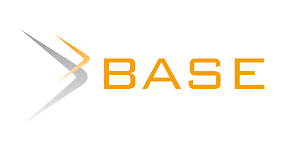Students’ Perceptions of Corrective Feedback in English Speaking Classes
Keywords:
Corrective Feedback, Speaking Skills, Student Perceptions, English Language LearningAbstract
This study investigates the perceptions of fifth-semester English Department students at STAIN Mandailing Natal regarding the corrective feedback provided by lecturers during English-speaking sessions. The main objectives are to identify the types of corrective feedback used by lecturers, explore students' reactions to the feedback, and assess its impact on their speaking proficiency. The study employed a mixed-methods approach involving questionnaires and interviews, with a sample of thirty students. The findings reveal that students generally view corrective feedback positively and acknowledge its role in helping them identify and address their speaking errors. However, issues such as anxiety and fear of making mistakes remain significant barriers to fluent English speaking. The study also highlights that recasts and explicit corrective comments are perceived as the most effective forms of feedback for improving speaking skills.
Downloads
References
Asratie, M. G., Wale, B. D., & Aylet, Y. T. (2023). Effects of using educational technology tools to enhance EFL students’ speaking performance. Education and Information Technologies. https://doi.org/10.1007/s10639-022-11562-y
Bashori, M., van Hout, R., Strik, H., & Cucchiarini, C. (2022). Web-based language learning and speaking anxiety. Computer Assisted Language Learning. https://doi.org/10.1080/09588221.2020.1770293
Burns, A. (2019). Concepts for Teaching Speaking in the English Language Classroom1. LEARN Journal: Language Education and Acquisition Research Network. https://doi.org/10.61587/mmit.uz.vi.31
Damayanti, M. E., & Listyani, L. (2020). AN ANALYSIS OF STUDENTS’ SPEAKING ANXIETY IN ACADEMIC SPEAKING CLASS. ELTR Journal. https://doi.org/10.37147/eltr.v4i2.70
Demirel, M. V., Türkel, A., & Aydın, İ. S. (2020). Speaking self-efficacy beliefs of Turkish university students. Cypriot Journal of Educational Sciences. https://doi.org/10.18844/cjes.v15i3.4905
Ellis, R. (2008). The Study of Second Language Acquisition (2nd ed.). Oxford University Press.
Fitria, A., Dwimaulidiyanti, A., & Sapitri, S. N. M. (2021). The Implementation of Cake Application in Learning English Speaking Skills. International Conference on Education of Suryakancana.
Hoesny, M. U., Setyosari, P., Praherdhiono, H., & Suryati, N. (2023). The Correlation of Speaking Self-Efficacy, Speaking Proficiency and Gender in ESP Context. Pegem Egitim ve Ogretim Dergisi. https://doi.org/10.47750/pegegog.13.02.23
Hongsa, N., Wathawatthana, P., & Yonwilad, W. (2023). The Effects of TikTok Application on the Improvement of EFL Students‟ English-Speaking Skills. World Journal of English Language. https://doi.org/10.5430/wjel.v13n7p77
Karpovich, I., Sheredekina, O., Krepkaia, T., & Voronova, L. (2021). The use of monologue speaking tasks to improve first-year students’ english-speaking skills. Education Sciences. https://doi.org/10.3390/educsci11060298
Lisnawati, I. (2021). Speaking learning based on multimedia. Journal of Language and Linguistic Studies. https://doi.org/10.52462/jlls.147
Pakula, H.-M. (2019). Teaching speaking. Apples - Journal of Applied Language Studies. https://doi.org/10.17011/apples/urn.201903011691
Pratiwi, D. I., Ubaedillah, U., Puspitasari, A., & Arifianto, T. (2022). Flipped Classroom in Online Speaking Class at Indonesian University Context. International Journal of Instruction. https://doi.org/10.29333/iji.2022.15238a
Publications, S., & Technology, E. (2016). Proceedings of International Research Clinic & Scientific Publications of Educational Technology. 2010, 775–781.
Saed, H. A., Haider, A. S., Al-Salman, S., & Hussein, R. F. (2021). The use of YouTube in developing the speaking skills of Jordanian EFL university students. Heliyon. https://doi.org/10.1016/j.heliyon.2021.e07543
Santhanasamy, C., & Yunus, M. M. (2022). A systematic review of flipped learning approach in improving speaking skills. In European Journal of Educational Research. https://doi.org/10.12973/eu-jer.11.1.127
Wahyuningsih, S., & Afandi, M. (2020). Investigating English speaking problems: Implications for speaking curriculum development in Indonesia. European Journal of Educational Research. https://doi.org/10.12973/EU-JER.9.3.967















